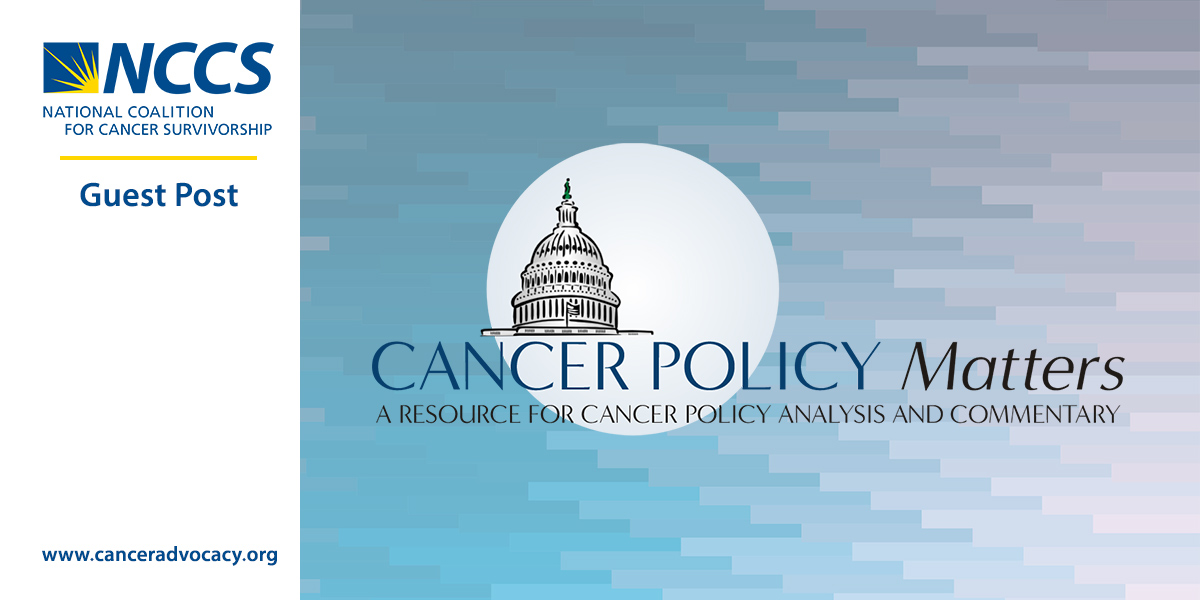A Medical School Perspective: Beyond the Science, We Must Learn to Communicate with Patients
 By Nainika Nanda, MD
By Nainika Nanda, MDOtolaryngology Resident
University of Wisconsin-Madison
Survivorship. What does this mean? Oncology highlights patients currently battling cancer. However, survivorship encompasses a longer timeline. Cancer requires lifelong care, which is best achieved through proper doctor-patient communication. This relationship is a keystone of medicine. Unfortunately, that focus can be lost in the sea of information medical students must master.
A common analogy for medical education is “drinking from a fire hose.” In having to learn this quantity of information at this pace, curricula are classically centered on textbook knowledge in the earlier years. My first year of medical school required ten hours of physician shadowing. During my second year, the hours of patient contact increased, as we conducted patient interviews every 1 to 2 weeks. They were often during peak exam time and focused on complex patients with medical issues beyond our previous scope of exposure. So, our effort was inevitably directed towards learning the science of medicine—diagnosis and treatment—rather than the art of medicine, puzzle-solving, and empathetic interactions.
I had the honor of participating in the CUPID (Cancer in the Under-Privileged, Indigent, and Disadvantaged) program in the summer after my first year of medical school. This fellowship through Sidney Kimmel Comprehensive Cancer Center and Johns Hopkins Medicine created opportunities to work on research in diagnostic tools for pancreatic cancer, shadow clinicians in the operating rooms and clinics, and be introduced to NCCS.
Having had minimal direct patient interaction in my education hitherto, these experiences were invaluable. I saw firsthand how important the clinician is to the cancer patient and their family. In the following years of medical school, I was able to seek out further exposure to clinicians handling such complex situations, because I had learned of the value of these experiences to my education.
Yet, one of the most influential experiences was at a metastatic breast cancer retreat hosted by Johns Hopkins Hospital for patients and spouses, which I attended during my fourth year of medical school. This weekend-long event created an atmosphere outside of the clinical setting for patients to hear each other’s stories without physician interaction inadvertently directing focus to therapy options. Patients welcomed me, sharing deep, personal stories of how their illnesses were impacting their lives and relationships with their families. They were eager to provide feedback to a budding physician based on interactions they had with physicians during their care, some heart-warming and some devastating.
Clinicians are devoted to their patients’ well-being. Yet so often, the challenges of providing high-quality care often rely on using the limited time available per patient appointment, often 15 to 20 minutes, to discuss complex topics. These concepts—complex therapeutic regimens, the concept of a lifetime illness, and advanced directives and end-of-life care—are not addressed in the early part of our training and take years to learn.
Medical training should incorporate these topics early and routinely, possibly through standardized patient encounters, case scenarios, and shadowing more experienced physicians dealing with these situations. In an educational system with so much to learn in so little time, adding more formal instruction will not be easy, but it is critical.
Understanding the science and getting the treatment right is crucial, but that’s only part of the equation. We as physicians must also remember the humanity of every patient and loved one. We need to be better equipped to serve as supportive, empathetic, and honest advisors to patients. Even when the discussions are challenging, decisions must be made by optimizing the doctor-patient relationship.
About Nainika Nanda
Dr. Nanda recently graduated from West Virginia University School of Medicine. Experiences throughout her medical school training inspired her to pursue a specialty with vast opportunities in research and patient care related to both benign and malignant tumor biology. Currently, she is a resident physician at University of Wisconsin-Madison in the specialty of Otolaryngology-Head and Neck Surgery, commonly known as ENT.
Note: The views and opinions expressed in any guest post featured on our site are those of the guest author(s) and do not necessarily reflect the opinions and views of the National Coalition for Cancer Survivorship. Read our blog and comment policies here.




